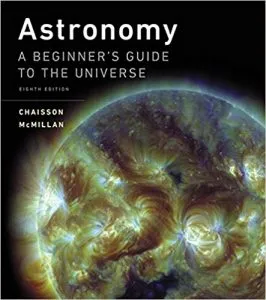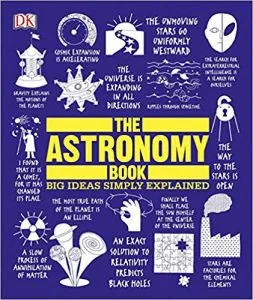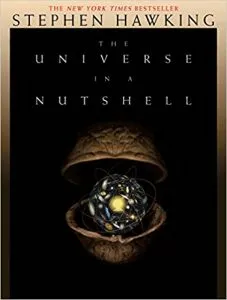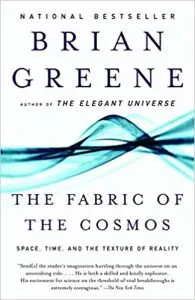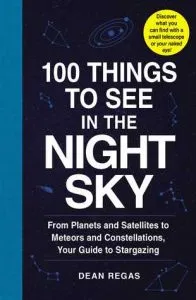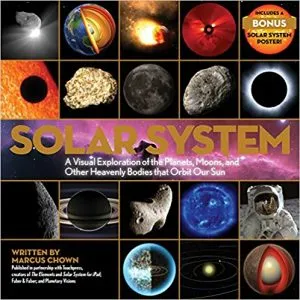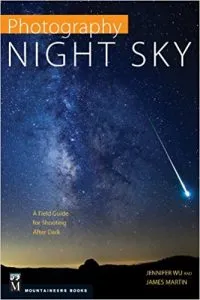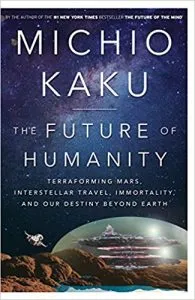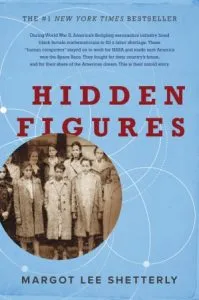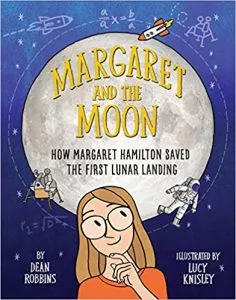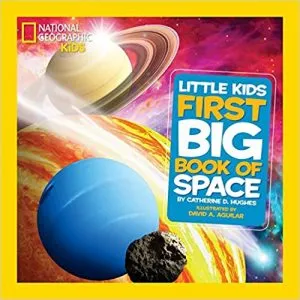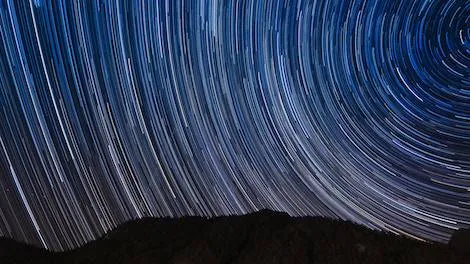
Astronomy Books For Beginners: 25 Reads to Start Learning about Space
As teens growing up in the country suburbs, my friends and I would lie in my parents’ driveway and look up at the stars. To us, that vastness of space was a far-off wonder, a mystery. And yet, some people study this stuff. Personally, I don’t remember many astronomy lessons in school, but I’ve always been curious to learn. Which brings us to the search for astronomy books for beginners.
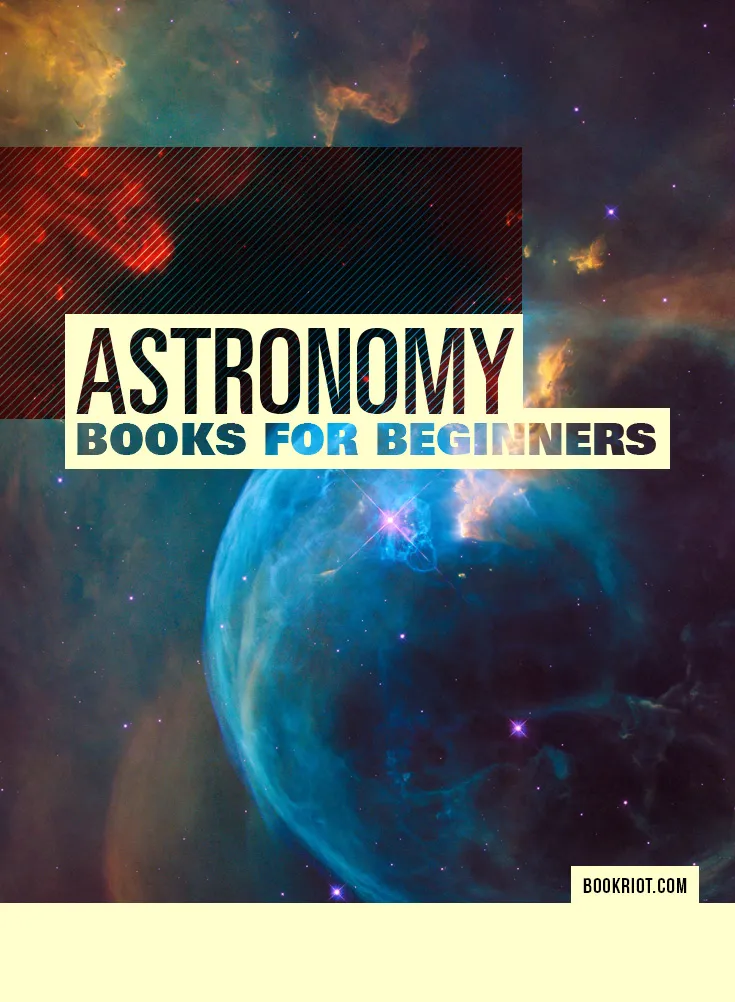
If, like me, you’re new to astronomy but want to know more, this list is for you. I’ve rounded up some accessible, easy-to-understand books about space, so all you have to do is pick one and get reading.
General Astronomy Books For Beginners
Astronomy for Dummies by Stephen P. Maran
This staple from the popular For Dummies series gets pretty high ratings from readers. It’s geared towards amateurs, with some focus on stargazing. So if you want to learn about space with a telescope in tow, this one might be for you.
 Astronomy: A Beginner’s Guide to the Universe by Eric Chaisson and Steve McMillan
Astronomy: A Beginner’s Guide to the Universe by Eric Chaisson and Steve McMillan
This is a traditional textbook like you might find in an astronomy class. Goodreads reviewers agree it’s a great source for beginners to learn the basics of astronomy.
Astronomy: A Self-Teaching Guide by Dinah L. Moche
This workbook is designed to help you teach yourself, like an astronomy class you hold in your hands. To facilitate learning, it includes learning goals, reviews and self-tests with answer keys to make sure you’re actually acquiring new knowledge as you read.
 The Astronomy Book: Big Ideas Simply Explained by DK
The Astronomy Book: Big Ideas Simply Explained by DK
According to one Amazon reviewer, The Astronomy Book has “all theories and people” and nary a star chart. If that sounds like what you want out of your first foray into astronomy, put this on your self-made syllabus.
Astronomy 101: From the Sun and Moon to Wormholes and Warp Drive, Key Theories, Discoveries, and Facts about the Universe by Carolyn Collins Petersen
The title alone makes this book sound like a good way to go if you’re looking for breadth in your astronomy book for beginners. With this one, learn a little bit about everything to prep yourself for branching more deeply into topics that grab your interest.
Astronomy Books For Beginners That Deal With Time & Space
 The Universe in a Nutshell by Stephen Hawking
The Universe in a Nutshell by Stephen Hawking
It probably goes without saying that those hoping to learn about space and time should read Stephen Hawking, but I figured I’d say it anyway. This book, written to a “general audience,” updates readers on theoretical physics since the publication of the more widely known A Brief History of Time.
Space, Stars, and the Beginning of Time: What the Hubble Telescope Saw by Elaine Scott
Want to know what we know about how we got here? Exploring what we’ve learned from the Hubble Telescope, Scott writes about various discoveries and advancements related to time and space.
 The Fabric of the Cosmos: Space, Time, and the Texture of Reality by Brian Greene
The Fabric of the Cosmos: Space, Time, and the Texture of Reality by Brian Greene
In this book, Greene breaks down concepts like String Theory and the Heisenberg Uncertainty Principle in a way that makes them easier for non-experts to understand. To do this, he draws analogies with common experiences. If you want to dip your toes into complex ideas about space, time, and reality, but aren’t sure you’ve got the science chops to follow along quite yet, give this one a go.
Stargazing For Beginners
Nightwatch: A Practical Guide to Viewing the Universe by Terence Dickinson, Illustrated by Adolf Schaller
This guide to watching the night sky tops the list for nearly every search for stargazing texts. The updated edition will be accurate through 2025—plenty of time to get a firm footing in stargazing.
 100 Things to See in the Night Sky From Planets and Satellites to Meteors and Constellations, Your Guide to Stargazing by Dean Regas
100 Things to See in the Night Sky From Planets and Satellites to Meteors and Constellations, Your Guide to Stargazing by Dean Regas
Okay, I’ll admit it. This Cincinnati girl got excited to see that Regas is the resident Astronomer for the Cincinnati Observatory. But residing in Cincinnati is far from his only credential. Regas co-hosts a PBS program about stargazing and has an impressive background in writing about the stars, making it likely that he knows what he’s talking—er, writing—about with this one.
Guide to the Stars by Ken Graun
This is, technically, a map, not a book. If you’re just looking to learn where the constellations are as you try to find them in the night sky, though, it will be a useful guide. Best of all, it’s designed specifically for beginner stargazers.
The Solar System & Planetary Guides
Encyclopedia of the Solar System, 2nd Edition by Lucy-Ann McFadden, Torrence Johnson, and Paul Weissman
This self-contained reference collection to help you learn about the solar system is ideal for beginners due to its breadth of easy-to-understand information.
 Solar System: A Visual Exploration of the Planets, Moons, and Other Heavenly Bodies that Orbit Our Sun by Marcus Chown
Solar System: A Visual Exploration of the Planets, Moons, and Other Heavenly Bodies that Orbit Our Sun by Marcus Chown
Learn better with visuals? This book combines informative text with stunning visuals to give beginners an introduction to and deeper understanding of our solar system.
Exploring the Solar System with Binoculars: A Beginner’s Guide to the Sun, Moon, and Planets by Stephen James O’Meara
For those without telescopes, this guide teaches you about what you can see with the naked eye or simple, handheld binoculars. If you want to look up at the sky and identify cool stuff like planets, comets, and more, this book has got your back.
Catching Stardust: Comets, Asteroids, and the Birth of the Solar System by Natalie Starkey
What can scientists learn from studying comets? Well, for starters, studying movement of objects in space can teach us about Earth’s place in the solar system. Catching Stardust explores the story of comets and asteroids, along with how we’ve learned about Earth’s past and future by studying them.
Astrophotography
 Photography: Night Sky: A Field Guide for Shooting After Dark by Jennifer Wu and James Martin
Photography: Night Sky: A Field Guide for Shooting After Dark by Jennifer Wu and James Martin
You know how it’s so hard to capture nature’s beauty in photographs? Well, Jennifer Wu is an expert on photographing the sky at night, and this book will teach you how to do it, too.
Collier’s Guide to Night Photography in the Great Outdoors by Grant Collier
Written by a man with 14 years’ experience, this book teaches the specialized techniques you’ll need to photograph the sky at night.
Space Travel & Life On Other Planets
The Future of Humanity: Terraforming Mars, Interstellar Travel, Immortality, and Our Destiny Beyond Earth by Michio Kaku
Concerned about space from a “will humanity outlive this Earth” perspective? Kaku dives into the topic of space from a human future perspective in this book about interstellar travel and humanity’s destiny beyond Earth.
Packing for Mars by Mary Roach
Mary Roach takes a deep dive into the theoretical realities of life in space. In Packing for Mars, Roach explores the answers that space simulation studies have given us to a number of questions about what humans can and can’t do away from planet Earth.
 Hidden Figures: The American Dream and the Untold Story of the Black Women who Helped Win the Space Race by Margot Lee Shetterly
Hidden Figures: The American Dream and the Untold Story of the Black Women who Helped Win the Space Race by Margot Lee Shetterly
This is the book that Oscar-nominated film Hidden Figures was based on. In it, Margot Lee Shetterly tells the story of the African American women working as “human computers” for NASA, calculating rocket trajectories for the Mars and Apollo missions.
Chasing Space: An Astronaut’s Story of Grit, Grace, and Second Chances by Leland Melvin
Want to learn about life in space from an astronaut? Look no further than Leland Melvin’s memoir, which includes tales about how he became an astronaut up through his missions to the International Space Station.
Astronomy Books For Kids
Looking Up!: The Science of Stargazing by Joe Rao, Illustrated by Mark Borgions
This book is an early-reader geared towards first through third graders. In it, Rao provides answers to basic questions about the sun, moon, stars, planets, comets, and meteors. The book also provides information about the recent 2017 total solar eclipse.
 Margaret and the Moon by Dean Robbins, Illustrated by Lucy Knisley
Margaret and the Moon by Dean Robbins, Illustrated by Lucy Knisley
Margaret and the Moon is an illustrated biography of Margaret Hamilton, who led the NASA team from MIT that developed onboard flight software for the first moon landing.
There’s No Place Like Space: All About Our Solar System by Tish Rabe, illustrated by Aristides Ruiz
A little outdated due to its 1999 release, the updated version nevertheless demotes Pluto from planetary status. Illustrated and familiar to kids who love Dr. Suess, There’s No Place Like Space would be a great introduction to space studies for young readers.
 National Geographic Little Kids First Big Book of Space by Catherine D. Hughes, illustrated by David A. Aguilar
National Geographic Little Kids First Big Book of Space by Catherine D. Hughes, illustrated by David A. Aguilar
Full of colorful illustrations and text that’s easy for early readers or reading aloud, this book teaches basic concepts. It serves as a great intro point for Earth, the moon and sun, our solar system, and other objects in space.
So that’s it—25 astronomy books for beginners! Now if you’ll excuse me, I’m going to get back to studying the stars. Want even more? Find YA books about space here.


